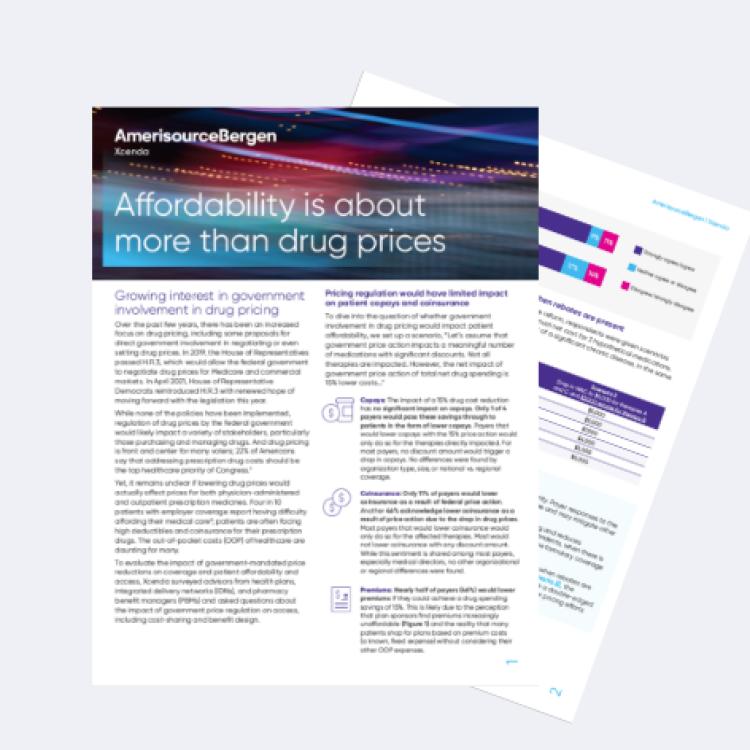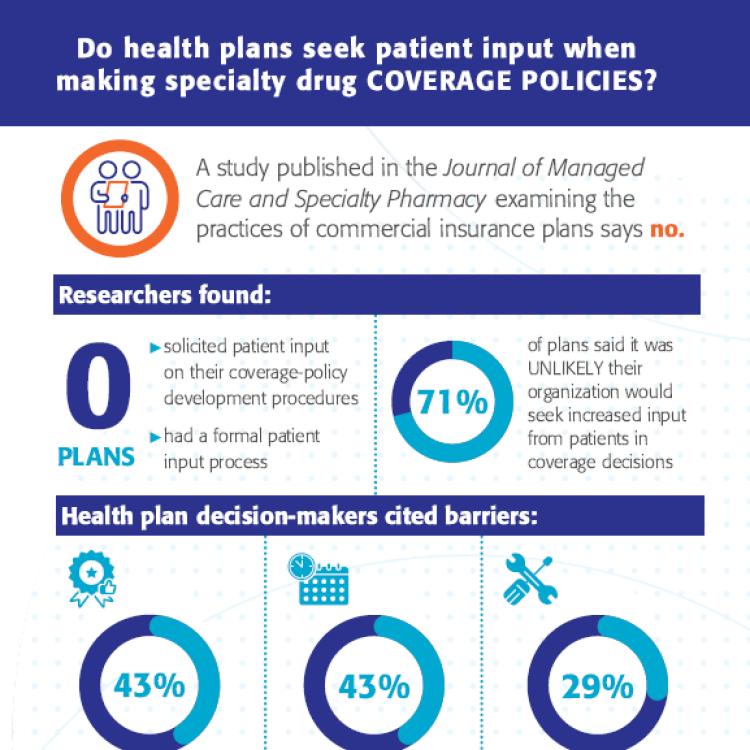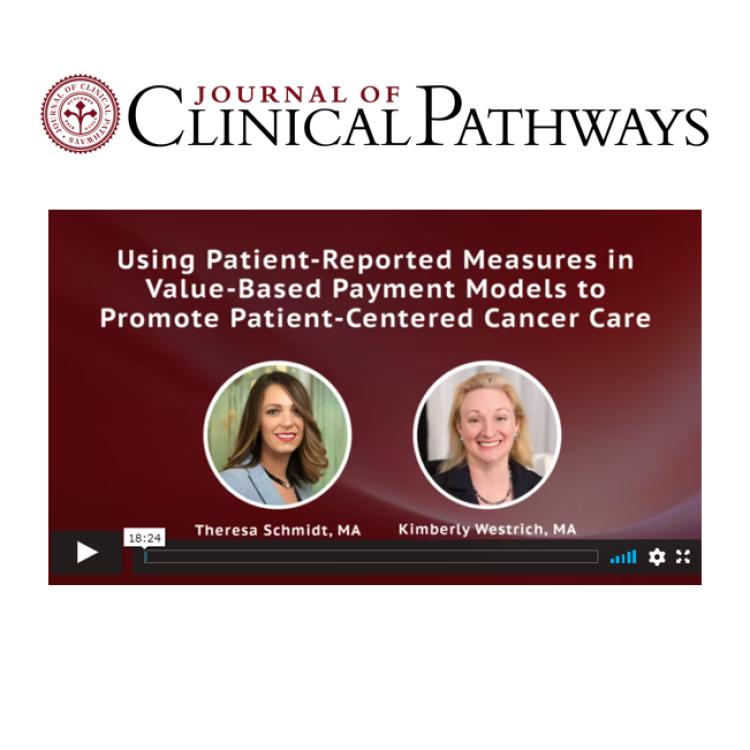The Debate Over Health Spending
As the debate heats up over policy proposals aimed at health spending, access and affordability issues, it’s vital to maintain focus on what works best for patients. In his commentary for Chain Drug Review, NPC President and CEO John M. O’Brien, PharmD, MPH, argues that fostering innovation is the best route to a healthier world and that policies that disincentivize innovation could pose long-term risks to patient health.
In a commentary for PharmaBoardroom, Dr. O’Brien points to a key obstacle in bringing innovation to patients: the failure to modernize health benefit design to mitigate growing barriers between patients and treatments that yield improved outcomes. In a recent blog, NPC Vice President of Health Services Research Kimberly Westrich, MA, and Research Consultant Lisabeth Buelt, MPH, describe ways to make health benefit design more patient-centered by rethinking current utilization management practices and adjusting patient cost-sharing to incentivize high-value care.
 NPC Highlights
NPC Highlights

Affordability Is About More Than Drug Prices
A new study published by NPC and Xcenda found that potential government involvement in drug pricing would be unlikely to increase patient affordability. In a survey of health plan decision-makers, most said that no amount of reduction in drug prices would trigger a drop in copays or coinsurance rates. In a Morning Consult commentary, NPC’s research team outlined why reforming health benefit design would be a better approach to truly address affordability concerns for patients and the overall health system. During a webinar hosted by the USC-Brookings Schaeffer Initiative for Health Policy, Dr. O'Brien discussed how the Medicare Part D rebate system creates perverse pricing incentives and barriers to affordability for patients.

Specialty Drug Coverage Policies Crafted Without Patient Input
Patients are shouldering more and more of the costs for their health care, yet health insurance plans aren’t asking patients for input when developing specialty drug coverage policies, according to a study published in the Journal of Managed Care & Specialty Pharmacy. Researchers found that none of the plans they examined had a process for including patient input and that 71% of health plan decision-makers said it was unlikely their organization would seek more input from patients.

Do Investments in Social Determinants of Health Reduce Health Care Costs?
Though the importance of addressing social determinants of health (SDOH) is increasingly recognized, stakeholder efforts could be hampered by gaps in the research and available data. In a blog post for AcademyHealth, NPC Chief Science Officer Robert W. Dubois, MD, PhD, describes research from NPC and Altarum that found most studies examining the financial impact of social need interventions were poorly designed, inadequately documented and inconsistently presented. Researchers recommended improving study designs through formal guidelines for conducting and evaluating SDOH studies.

“Hardwiring” Patient-Centered Care into Health Care Delivery
On a recent webcast hosted by the Journal of Clinical Pathways (JCP), NPC’s Ms. Westrich discussed an essential step in building patient-centered care into the health care delivery system: incorporating patient-reported measures into value-based payment models. The discussion focused on oncology payment models and reflected points from her article published in JCP earlier this year, “Patient Voices in Value-based Cancer Care Priorities for the Biden Administration.” NPC also highlighted the need to promote greater use of patient-reported measures in comments submitted to the Centers for Medicare and Medicaid Services (CMS).
 Mark Your Calendar
Mark Your Calendar
Webinar: What’s Next for Price Transparency?
Wednesday, October 6, 12 – 1 p.m. ET
With support from NPC, AcademyHealth will host a panel discussion on the impact of price transparency reporting and what additional efforts are necessary to help consumers make more informed decisions regarding the costs and quality of care.
Association for Value-Based Cancer Care Summit
Wednesday, October 13 - Friday, October 15
NPC’s Dr. O’Brien will speak during multiple panel sessions at the AVBCC summit in New York, which will be simulcast for virtual attendees. The agenda features topics that will help oncology care professionals maximize value in cancer care by focusing on clinical, cost and access issues.
FT Global Pharmaceutical and Biotechnology Conference
Monday, November 8 - Wednesday, November 10
During a Monday morning panel session, NPC's Dr. O'Brien will speak about pricing and market access trends. He and fellow panelists will explore the prospects for health policy and regulatory reforms around market access, the pandemic's lasting impact on product approval standards and processes, and the shifting dynamics between pharma, payers, patients and other stakeholders. NPC is a supporting partner.
STAT Summit 2021
Tuesday, November 16 - Thursday, November 18
NPC is a supporting sponsor for this year’s hybrid STAT Summit, which will feature analysis and discussion on wide-ranging topics and policy issues that impact the biopharma community.
 ICYMI
ICYMI
- What is the role of chronic disease in health spending? NPC’s Dr. Dubois and Vice President of Research Michael Ciarametaro, MA, co-authored a study published in the Journal of Chronic Diseases and Management, “It Is Not Just the Prices! The Role of Chronic Disease in Accounting for Higher Health Care Spending in the United States.” Read the related blog post here.
- NPC partnered with researchers from Brigham and Women’s Hospital and Harvard Medical Center to examine the rigor of real-world evidence (RWE) studies. The paper, published in Clinical Pharmacology & Therapeutics, found significant methodological bias-related errors in the design and analysis within published RWE studies.
- Dr. O’Brien sat down with Chain Drug Review and Pharmacy Times for video interviews that addressed his past experience, what led him to NPC, his future plans and his perspective on the value of pharmacists.
Pharmacists are the most accessible health care professional and those most prepared to optimize medication use to improve patient health.
